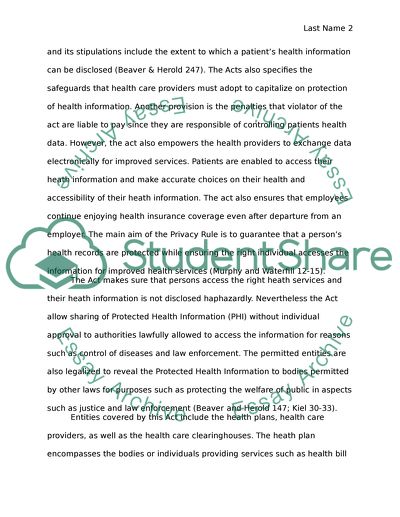Cite this document
(“Health Insurance Portability and Accountability Act Research Paper”, n.d.)
Health Insurance Portability and Accountability Act Research Paper. Retrieved from https://studentshare.org/health-sciences-medicine/1452252-hippa
Health Insurance Portability and Accountability Act Research Paper. Retrieved from https://studentshare.org/health-sciences-medicine/1452252-hippa
(Health Insurance Portability and Accountability Act Research Paper)
Health Insurance Portability and Accountability Act Research Paper. https://studentshare.org/health-sciences-medicine/1452252-hippa.
Health Insurance Portability and Accountability Act Research Paper. https://studentshare.org/health-sciences-medicine/1452252-hippa.
“Health Insurance Portability and Accountability Act Research Paper”, n.d. https://studentshare.org/health-sciences-medicine/1452252-hippa.


